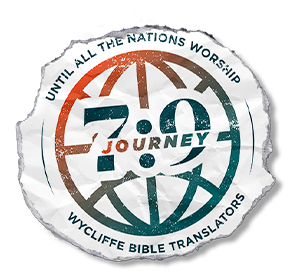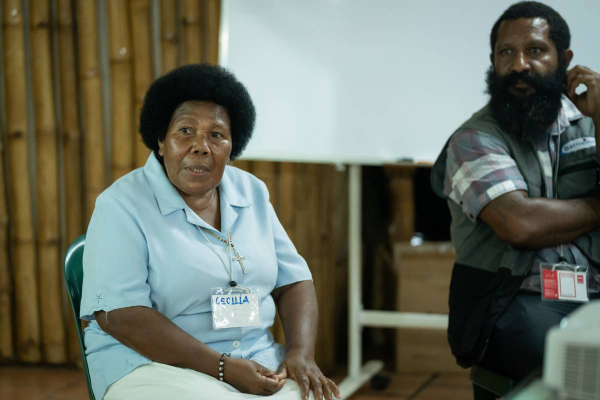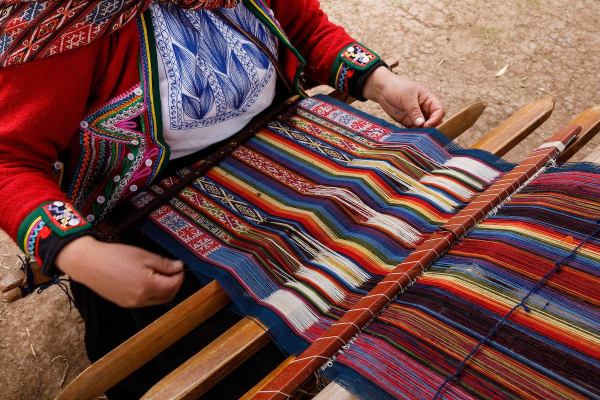Treasures in the Dark: Real Togetherness
Finding community through vulnerability

I was afraid — nervous I would say the wrong thing or that someone else’s pain would open my own wounds. So I held back when life got difficult for people around me. Stepping into the suffering of others felt intrusive, and I feared that my attempt to help could make things worse. I expressed genuine sympathy and faithfully prayed for those in pain, but the walls around my heart stayed firmly in place.
At least that’s the way it was until a season of heartache became my reality too. When the storm clouds of suffering rolled in and threw a dark shadow over my family, what we wanted more than anything was to know we were not alone. In the middle of our grief and confusion, we lost the ability to pretend we were okay — and gained friends who were unafraid to sit with us in our pain.
Not Alone
The book of Job is filled with the misguided attempts of Job’s friends to try and assign blame for the devastating loss of Job’s children, possessions and health. It can be easy to focus on how wrong his friends were in what they said. But if we do only that, we miss something critical in Job 2:11-13 (NLT):
When three of Job’s friends heard of the tragedy he had suffered, they got together and traveled from their homes to comfort and console him. Their names were Eliphaz the Temanite, Bildad the Shuhite, and Zophar the Naamathite. When they saw Job from a distance, they scarcely recognized him. Wailing loudly, they tore their robes and threw dust into the air over their heads to show their grief. Then they sat on the ground with him for seven days and nights. No one said a word to Job, for they saw that his suffering was too great for words.
The first thing Job’s friends did was join him in his grief. They gave Job the gift of knowing that he was not alone in the darkness that had suddenly consumed him.
Lamenting Together
God created people to be relational. We are usually comfortable living the pleasant parts of life in community, inviting our friends and family into times of celebration; however, in U.S. culture we tend to view grief and tears as private or even embarrassing. Our impulse to hide our pain can keep us from knowing the aching beauty of lamenting — entering each other’s suffering and declaring together that this world is a broken place in desperate need of healing.
Israel’s King David knew lament well. He set his own heartache to music in passages such as Psalm 31:9, groaning, “ Have mercy on me, Lord, for I am in distress. Tears blur my eyes. My body and soul are withering away” (NLT). He continued sharing his grief in Psalm 42:3-4: “Day and night I have only tears for food, while my enemies continually taunt me, saying, ‘Where is this God of yours?’ My heart is breaking as I remember how it used to be: I walked among the crowds of worshipers, leading a great procession to the house of God, singing for joy and giving thanks amid the sound of a great celebration!”
These songs were not just for David’s private reflection — the Psalms were meant to be sung together at the temple. They were an invitation to grieve with one another. In expressing his pain, David gave words not only to the feelings of his countrymen, but to millions of people across centuries who have felt isolated in their suffering.
Seeing and Being Seen
My family’s dark season brought some profound losses, but one thing I will never regret losing is the fear of seeing others’ pain and being seen in my own. We were surrounded by friends whose own stories held wide swaths of dreams turned to ash. They stepped into my crumbling defenses with an easy grace that could only come from having walked through the dark themselves.
In that place of real togetherness, where shared suffering blossomed into shared hope, I learned how to simply be with people who are hurting. I learned to sit wordlessly, like Job’s friends did at first, and welcome tears — theirs and mine.
And when I needed words but couldn’t find my own, I learned to borrow King David’s, repeating psalms that have echoed in aching hearts across the ages.
Looking Ahead
Though genuine community can and does grow in dark times, our journey together doesn’t end in lament. As we mourn, we have the opportunity to remind each other of God’s faithfulness and the joy that’s coming!
We can proclaim, as David did: “You have turned my mourning into joyful dancing. You have taken away my clothes of mourning and clothed me with joy, that I might sing praises to you and not be silent. O Lord my God, I will give you thanks forever!” (Psalm 30:11-12, NLT)
Dig for Treasure
Do you feel alone in your suffering? Check out these Scripture passages for some reminders of the truth:
- Isaiah 43:2 — God is with us when we walk through difficulties.
- Romans 8:38-39 — Nothing can separate us from God’s love.
- 2 Corinthians 1:3-4 — God comforts us so we can comfort others.
- Hebrews 4:14-16 — Jesus understands what we’re going through.
Journey With Us
Are you new to Wycliffe? Hop aboard Journey 7:9! We want to see people from every nation and language able to worship before God’s throne (Revelation 7:9). Travel with us to see how Bible translation is making that happen: no passport needed!
Explore the Journey






